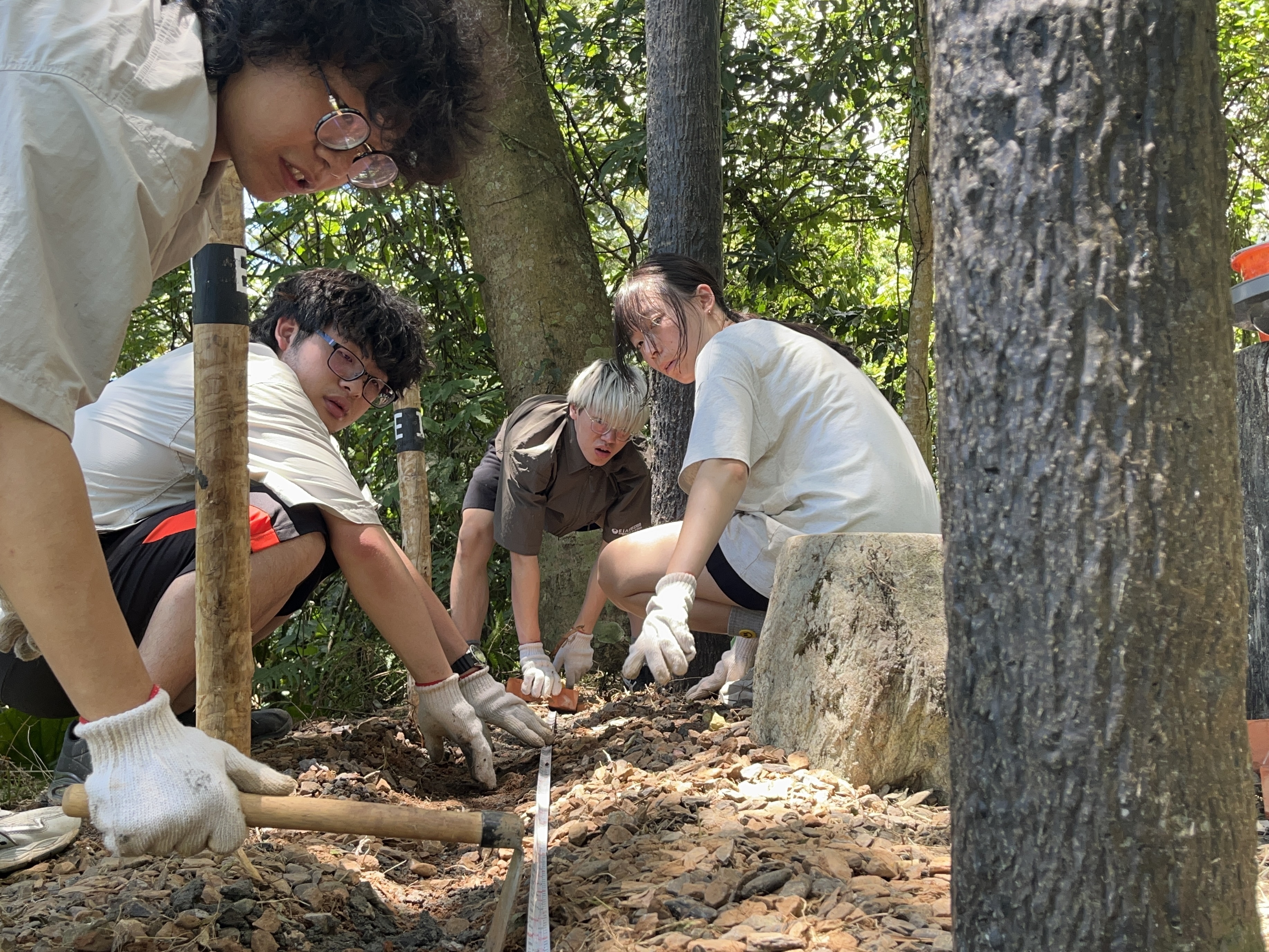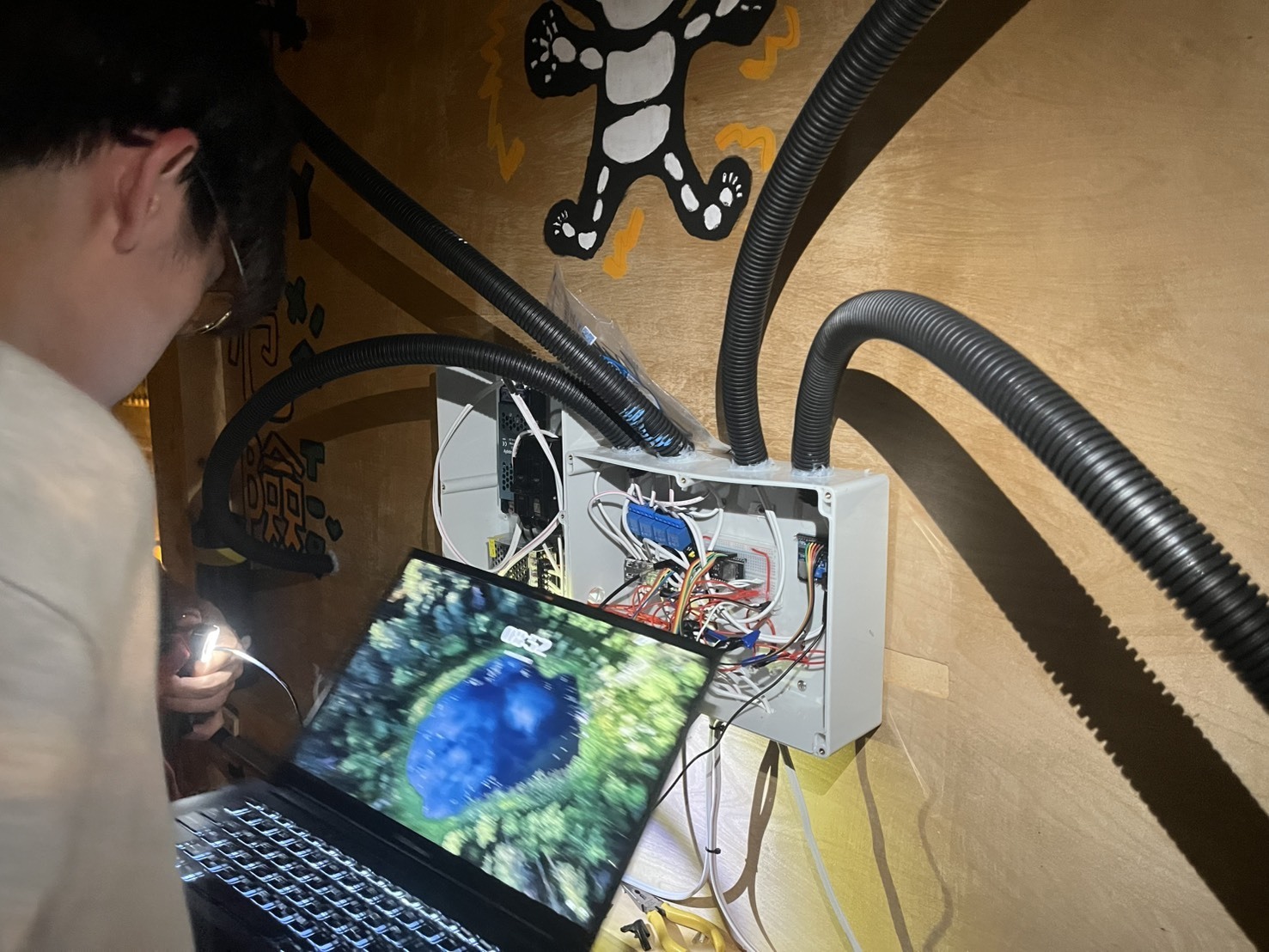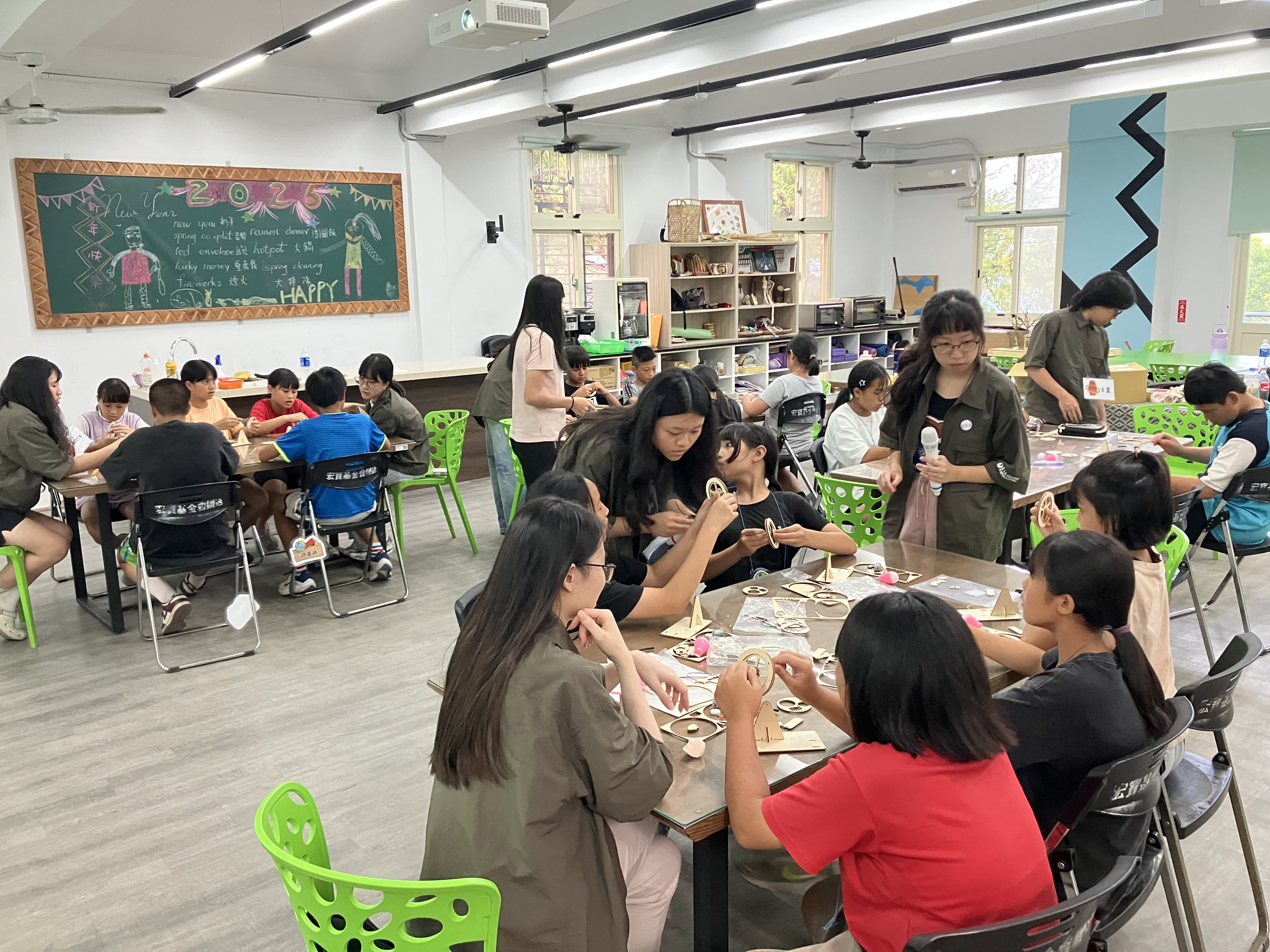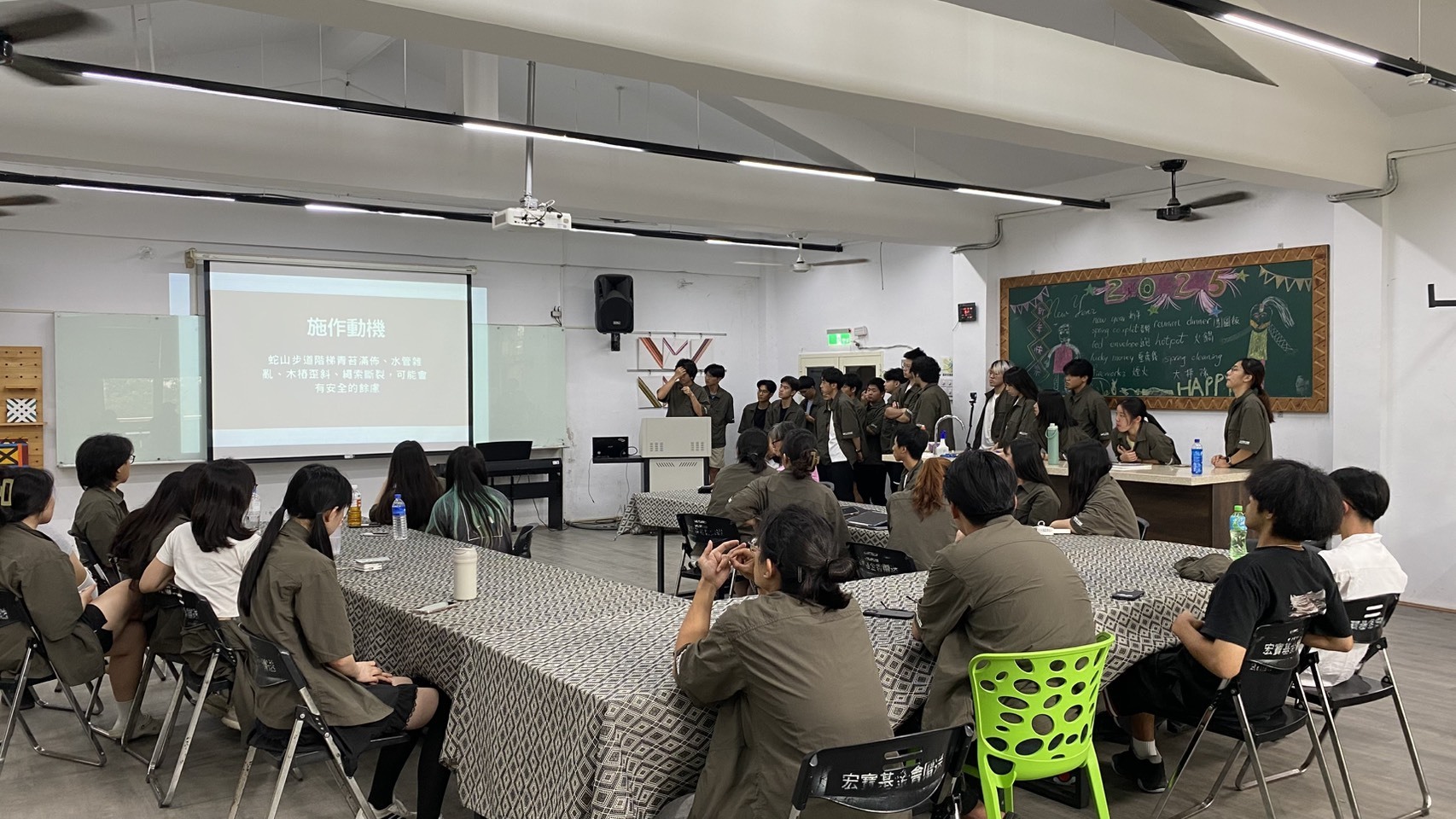Taiwan Tech engineers team up with Japan and Indonesia to empower rural Taitung.
Since 2020, Taiwan Tech has been implementing the Ministry of Education’s University Social Responsibility (USR) project, “Engineers in Action” (EIA), in the Dongyue Atayal Tribe of Nan'ao Township, Yilan County. In its sixth consecutive year, the project continues to deepen its impact. From June 7 to 16 this year (2025), around 60 faculty and students from four institutions - Taiwan Tech, Songshan High School of Agriculture and Industry, Osaka Institute of Technology (Japan), and Widya Mandala Catholic University (Indonesia) - formed a joint international team for the first time to carry out a 10-day summer fieldwork program. Together, they brought fresh energy in innovation and sustainability to the rural Dong’ao region.
This year’s program focused on four main themes: cultural revitalization, eco-tourism, educational innovation, and sustainable learning. Key hands-on projects included: restoring the She Mountain Trail to revive Atayal cultural spirit, creating bilingual signage for tribal tours as a cultural gateway, designing campus bulletin boards that integrate games and language learning, and hosting a sustainability workshop to spark green creativity.

The She Mountain Trail team members worked together to restore the pavilion, providing a resting spot for residents and visitors alike.
The She Mountain Trail (Babaw Kulu), rich in historical significance, was once a vital hunting and farming path for the tribe. However, it had been closed for years due to storm damage and disrepair. The Engineers in Action team, in collaboration with local youth, helped restore key facilities such as steps, handrails, a pavilion, and a traditional hunter’s hut. Their work included clearing drainage ditches, paving the trail with serpentinite, installing safety signs, and enhancing rest areas, using eco-friendly construction methods. The restored trail not only improves safety but also revives the community's cultural heritage, drawing both local residents and tourists back to the path.
Brian Lionardi, a student from Widya Mandala Catholic University in Indonesia, shared:
“Carrying heavy stones under the hot sun was tough, but the sense of accomplishment and the joy of helping others made it all worth it.”

Applying their knowledge, students created interactive and educational information boards.
In response to the growing demand for international tourism, the team installed multilingual guide walls and cultural signage at Dong’ao Station and nearby attractions. The displays introduce visitors to Atayal history, traditional weaving, archery culture, and the local school anthem, with audio guides available in five languages: Chinese, English, Japanese, Korean, and Atayal. The system integrates solar power with a rotating display mechanism, allowing it to store energy during the day and illuminate at night, blending technology with tradition to create a striking new landmark that welcomes visitors to the community.

They programmed electronic circuits to make the guide wall more interactive.
In the field of education, the team installed an interactive and educational information board at Dong’ao Elementary School. Made from natural wood and acrylic, the board combines elements such as a pinball game, puzzles, motion-sensing light boxes, and voice-activated QR codes. The content was personally recorded by the local Indigenous language teacher, allowing students to learn their native tongue through play. This playful learning experience not only enhances language acquisition but also serves as an innovative approach to preserving digital culture.

Led a sustainability workshop for students at Dong’ao Elementary School, introducing key concepts and hands-on activities.
As part of the sustainability workshop, the Engineers in Action team designed eight STEAM-themed activities, including building a hand-crank generator, soap-making (saponification), physics-based ice cream making, and crafting butterfly pea flower sparkling drinks. These hands-on experiments introduced students to concepts such as electricity generation, acid-base reactions, and carbon footprint, fostering environmental awareness, creativity, and green thinking-laying the groundwork for sustainability education at an early age.
Miyu Shimizu, a student from Osaka Institute of Technology, and Cheng-Wei Liu, a sophomore from Taiwan Tech’s Department of Chemical Engineering, both expressed how deeply moved and inspired they were during the final day’s reflection and presentation. They shared that the experience not only deepened their understanding of the project’s impact but also left them with a strong sense of purpose and fulfillment.
Now in its sixth year, the Engineers in Action program has taken root in Dong’ao. Through co-creation with the community, field interviews, and trust-building, the initiative has evolved from passive service to active collaboration. Together with local residents, the team has co-developed a cultural guide system and an ecological trail unique to the tribe. The core EIA team at Taiwan Tech shared: “We believe education and engineering should connect with people. When technology walks alongside culture, starting from the tribe, we can show the world the power and warmth of Taiwan’s actions.”

On the final day, all participants presented their project outcomes.